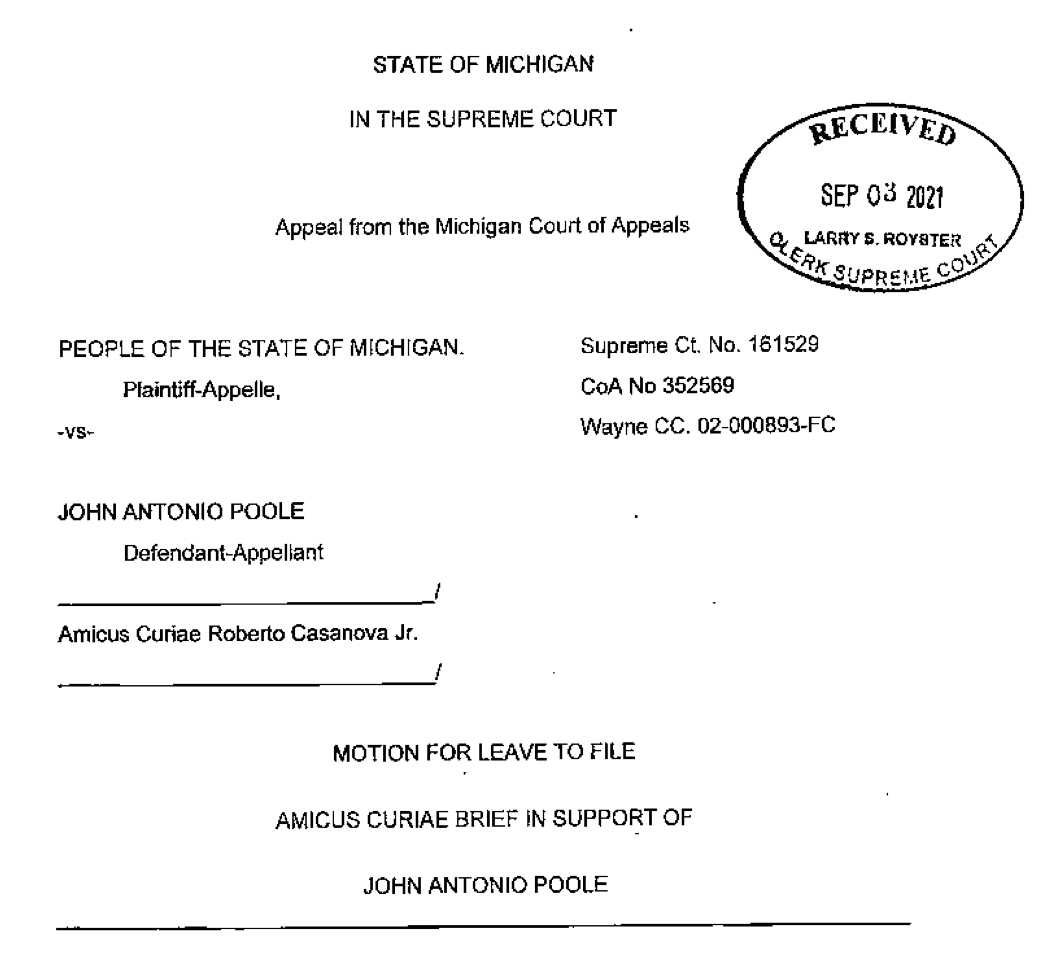 Open Amicus Brief as PDF
Open Amicus Brief as PDFSummary of Argument
NOW COMES Amici Curiae Roberto Casanova Jr. (interested prisoner) pursuant to MCR 7.312(H)(1) and hereby moves this Honorable Court for permission to file an amicus curiae brief in support of Defendant-Appellant John Antonio Poole. In support of this motion, amici curiae states: Appellant Poole was convicted of First Degree Murder, Felony Firearms. As a result of the conviction, Appellant Poole was sentenced to a mandatory Life Without Parole sentence. In 2012, the United States Supreme Court changed how sentencing judges should impose sentences on those under the age of 18. The Supreme Court concluded that "mandatory life without parole for those under 18 at the time of their crimes violates the Eighth Amendment's prohibition on cruel and unusual punishment" Miller v. Alabama 567 U.S. 460 (2012). In 2015, the United States Supreme Court applied Miller retroactively, Montgomery v. Louisiana, 136 S.Ct. 718, 736 (2016). The Michigan Legislature enacted MCL 769.25 and MCL 769.25a to address Life Without Parole sentences committed by minors and gave trial judges the discretion to impose sentences ranging from 25 years to 40 years with a maximum term of 60 years if the prosecuting attorney had moved the court to reinstate a life sentence after conducting a Miller Hearing. In 2017 Dr. Lawrence Steinberg, an expert in adolescent brain development and a professor at Temple University, testified at a federal evidentiary hearing that the same brain development and characteristic hallmarks of juveniles under 18 also apply to all teenagers and late adolescents with equal force. Subsequently, Appellant Poole filed a successive "motion for relief from judgment" based on new scientific evidence and the retroactive application of Miller as announced in Montgomery.